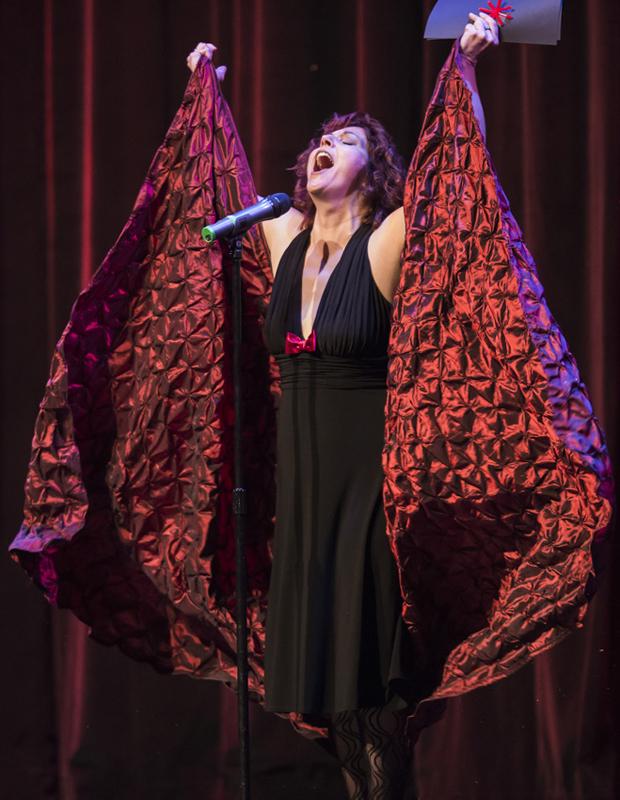Coochi snorcher, pussy, maneater — the list goes on. No matter what it’s called, actresses gave the vagina a voice Saturday night at the twelfth annual MU Vagina Monologues.
Female students from all walks of life dressed in a myriad of black and red garb and recited pieces centered on the vagina. No taboo went unaddressed. Unabashed performances and timely delivery focused on hair, smell, appearance and the exploration of the female orgasm.
But despite the humor, the Vagina Monologues is a cause, a call to women everywhere. The show is a product of V-Day, which, according to its website, is a global movement to end violence against women and girls.
Last Thursday marked V-Day’s fifteenth anniversary and 19 years since the Vagina Monologues, written by Eve Ensler, debuted off-Broadway. As an activist for women, Ensler conceived V-Day, and the event has grown larger each year.
This year, V-Day included One Billion Rising, an event that had one billion women take a stand against violence.
Many of the monologues tackled violence head on: They include pieces about the rape of Bosnian women during the Yugoslav wars, the abnormally high rate of rape and sexual assault among Native American women and “comfort women,” girls of varying ethnicities, some of whom were minors, who were sold into the Japanese sex slave trade.
Ninety percent of the production’s profits went to benefit community resources in Columbia, such as the True North Women’s Shelter and LEAD Institute. The other 10 percent goes to benefit the V-Day organization as a whole.
LGBTQ Resource Center Coordinator Struby Struble, one of two emcees during the night’s performance and an MU Vagina Monologues co-advisor, has been in the production since her time as an MU undergrad in 2002. It was the first campus event she was ever a part of, Struble said.
Struble now has an active part with organizing the show and recruiting.
Publicity is high and a number of performers — 108 this year — often come back after performing or join after seeing the show, Struble said.
“It’s very personal and individual for each person for different reasons,” Struble said. “They decorate their scripts…and sometimes they’re very personal, so they’ll put all sorts of different messages on them.”
The play has only grown since Struble’s first time more than a decade ago. Because of a cast that is annually changing and a new spotlight monologue Ensler writes each year, the creative process and the performance it produces is always fresh, Struble said.
The spotlight monologues focus on instances worldwide that exemplify the violence and injustice toward women Ensler highlights in the play. Violence against women is a complicated subject, in part because perpetrators of violence are often people who the victim knows, Struble said.
“Showing all sides of this movement and all sides of the experience help express that there is that complication to (violence) and that it is a large, multi-faceted issue,” Struble said.
The healing process for victims of violence is also on display in some monologues. The process takes time as life goes on, revealing a culture of silence the play succeeds in breaking apart, Struble said.
“A violence survivor isn’t simply someone who’s hurt and sad somewhere, but also someone who’s … living their life and doing all the things that we all do,” Struble said. “I think it encompasses the whole experience.”
As the audience exits the auditorium, Struble said she wants attendees to be inspired — inspired to get involved, to learn more or simply talk about the issues posed by the play.
Briana Sparks, an MU sophomore, said she was timid about coming to the performance, but after the performers took their final bow, she said she felt empowered that the monologues spoke to something inside of her.
“Come out next year,” Sparks said. “This is an experience.”








